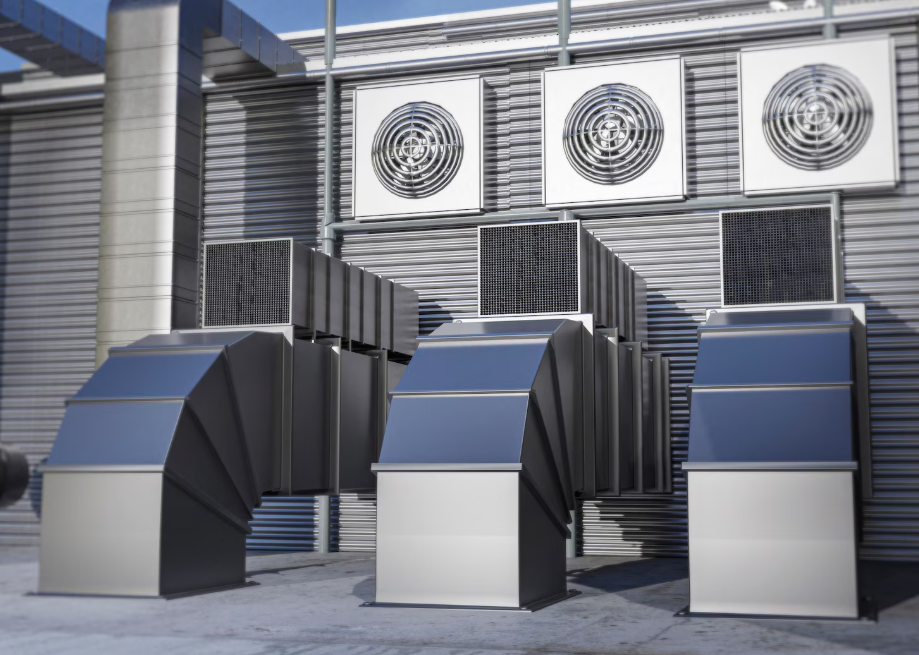When it comes to cooling your home during Winnipeg’s hot summer months, many homeowners debate whether a heat pump or a traditional air conditioner is the better choice. While both systems can keep your home comfortable in warm weather, the technology behind them and what they can do for you year-round differs significantly. Understanding these differences can help you make the right decision for your household’s comfort and energy efficiency.
How Does an Air Conditioner Work?
An air conditioner’s primary function is to cool your home. It operates by transferring heat from inside your living space to the outdoors. Here’s a breakdown of how the process works:
- Compressor: Circulates refrigerant that absorbs heat from the indoor air.
- Evaporator Coil: Located inside your home, this coil absorbs heat from indoor air as it passes over the refrigerant.
- Condenser Coil: Installed outside, it releases the absorbed heat into the atmosphere.
- Blower Fan: Circulates the cooled air back into your living space.
While air conditioners are excellent for summer comfort, they cannot provide heat during the colder months. That’s why homes in Winnipeg typically use an air conditioner paired with a furnace for year-round climate control. If you rely on a furnace, it’s wise to schedule regular Furnace Service In Winnipeg to ensure your system runs safely and efficiently.
How Does a Heat Pump Work?
A heat pump functions like an air conditioner in cooling mode, but it offers one key advantage: it can also heat your home. This dual capability makes it an energy-efficient alternative to running both a furnace and an air conditioner.
In the summer, the heat pump works just like an AC, extracting heat from indoors and moving it outside. In winter, the system reverses the process, pulling heat energy from the outside air (even when it feels cold) and transferring it indoors.
Some advantages of heat pumps include:
- Year-Round Use: Provides both heating and cooling.
- Energy Efficiency: Often uses less energy than a furnace/AC combo.
- Even Comfort: Maintains steady indoor temperatures.
However, it’s worth noting that in extremely cold climates like Winnipeg during peak winter heat pumps may require backup heat from a furnace or electric system.
Heat Pump vs. Air Conditioner: The Key Differences
To help you decide which is right for your home, here are the most important differences between the two systems:
1. Heating Capability
- Air Conditioner: Only cools. Heating requires a separate system like a furnace.
- Heat Pump: Heats and cools in one unit.
2. Energy Efficiency
- Air Conditioner: Efficient in cooling mode but needs a furnace for heat.
- Heat Pump: Typically more energy efficient overall, especially in moderate climates.
3. Climate Suitability
- Air Conditioner: Works well in areas with hot summers and freezing winters when paired with a furnace.
- Heat Pump: Ideal for regions with milder winters; still usable in Winnipeg with a reliable furnace backup.
4. Installation and Cost
- Air Conditioner: Usually lower upfront cost compared to a heat pump.
- Heat Pump: Higher initial investment but potential long-term savings on energy bills.
5. Maintenance Needs
Both systems require regular care. Homeowners should:
- Change filters regularly.
- Schedule annual inspections.
- Ensure outdoor units are free of debris.
Winnipeg residents often combine heat pumps or air conditioners with a dependable furnace, making professional furnace service in Winnipeg a smart routine for long-term comfort and efficiency.
Air Quality and Comfort Considerations
Indoor air quality is just as important as temperature control. Many Winnipeg homes use air exchangers to bring fresh air indoors while removing stale air. However, in certain conditions, such as heavy wildfire smoke or poor outdoor air quality, you may wonder How To Turn Off Air Exchanger systems temporarily to protect your family’s health.
A licensed HVAC technician can guide you on the safest way to pause or adjust your air exchanger without affecting overall system performance. Pairing this with a reliable heating and cooling system ensures your home stays both comfortable and safe year-round.
Which System is Right for You?
If you live in Winnipeg, your choice may come down to your home’s heating needs and energy goals:
- Choose an Air Conditioner if you already have a reliable, efficient furnace and want a cost-effective way to cool your home.
- Choose a Heat Pump if you’re looking for a two-in-one solution and are interested in energy savings. Just make sure you have a backup heating source for the coldest winter days.
Ultimately, the right system depends on your home’s size, insulation quality, and comfort preferences. Consulting with a trusted HVAC professional can help you determine whether a heat pump or air conditioner is the smarter investment for your home.
Conclusion
While both heat pumps and air conditioners can keep you cool in the summer, the key difference is that heat pumps also provide heating in the winter. For many Winnipeg homeowners, pairing one of these systems with a reliable furnace ensures comfort all year long. Regular furnace service in Winnipeg keeps your heating system safe and efficient, while understanding how to turn off air exchanger units when necessary can protect your indoor air quality.
With the right system and proper maintenance your home can stay comfortable through every season Manitoba’s climate brings.

